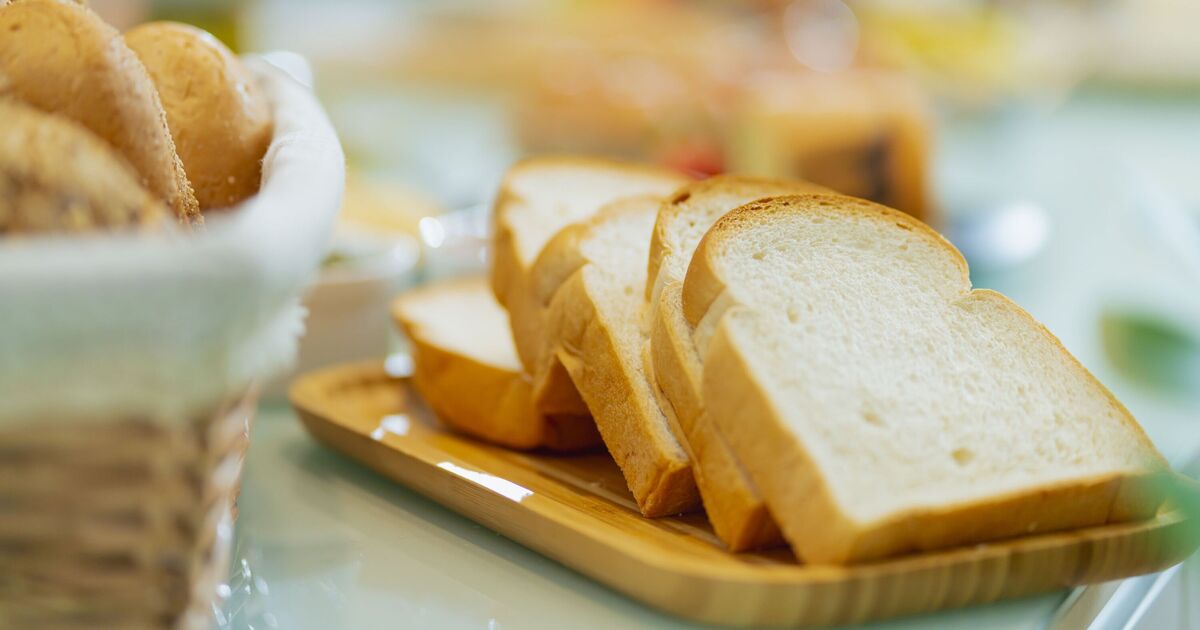Bread is often at the top of our shopping lists, but it’s frustrating when it goes mouldy and stale quickly. The culprit? It’s all about how you store it.
You might think storing bread is as simple as chucking it on the worktop or into the bread bin, but placing it in your kitchen can massively impact how long your loaf remains fresh.
Emilie Raffa, a baker and the woman behind The Clever Carrot, has served up some prime advice to prevent your bread from going off too quickly, highlighting that heat from kitchen appliances is a common cause for bread ageing before its time.
She said: “Years ago, we used to keep our bread in a plastic bag, in a drawer nestled in between the dishwasher and fridge.
“The excess heat from the two appliances, plus the moisture locked in the plastic bag, created the perfect storm for mould to grow. Everything in that drawer was covered in green hairy spots – rolls, tortillas, raisin bread – you name it!”
For bread that stays fresher longer, Emilie recommends stashing it in a cool, dry spot, far from any heat or moisture sources which means dodging the oven, stove, fridge, and even the fruit bowl.
So, why avoid the fruit bowl? Well, certain fruits, such as bananas and apples, emit ethylene gas, a ripening agent that not only matures fruit but can also make your bread go bad super quickly.
As these fruits ripen, they let out moisture, potentially creating a damp environment where mould loves to flourish.
Emilie cautioned: “Mould loves heat, moisture and food sources. For best results, keep your bread away from excess heat and humidity.”
She added that while sandwich bread keeps well in a plastic bag because it retains moisture and keeps the crust soft, it’s important not to seal the bag too tightly to avoid mould.
The pro advised: “Sandwich bread does well when stored in a plastic bag; it locks in moisture which keeps the crust soft. But too much moisture will create mould, so I’ve found it’s best not to keep the bag airtight. Loosely twist the end to close.”
Emilie recommends using paper bags for those tender brioche rolls and soft buns, praising their breathability but warning against letting in too much air, which can cause the bread to become stale.
She detailed: “Paper bags are more breathable than plastic, which is great for brioche rolls, soft buns, and other breads with added fat. But too much air will make the bread go stale quickly. Consider keeping these bags airtight as best you can.”
Instead of turning to your bread bin to keep your bread fresh, Emilie suggests refrigerating sandwich bread as a superior preservation method, as long as it’s wrapped properly to avoid staleness.
She added: “Fresh bread can in fact be stored in the fridge, contrary to what you might’ve read online (I never used to recommend this myself). We do this at our restaurant with excellent results.”
Store-bought bread and rolls can be kept at room temperature for two to four days or refrigerated for seven to 14 days.
Emilie suggests warming the bread in the oven at 150C before serving to maintain its ideal texture. She reassures that keeping bread in the fridge will prevent mould growth and keep it fresher for longer compared to leaving it out on the counter.












